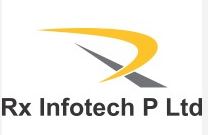Laapcell sits strategically within the EV value chain as a battery solutions provider for two-wheelers, three-wheelers, charging infrastructure, and solar-integrated storage. The Company is involved both in cell trading and pack assembly, giving it flexibility across applications, says Atul Gupta, Director, Rx Infotech in an interview with EVolution Auto India.

Q: What inspired you to start Rx Infotech? Was there a particular gap in the market you saw in IT spares & peripherals that drove you to take this path?
Atul Gupta: Rx Infotech was born out of a clear need in India’s IT ecosystem. Back in the 2000, there was a significant gap in the availability of reliable and affordable IT spares and peripherals. Most of the market was dependent on imports, and quality assurance was inconsistent. I saw an opportunity to build a trusted brand that could bridge this gap by offering genuine, tested, and value-driven IT components. That vision became the foundation of Rx Infotech.
Q: Can you walk us through the early days of Rx Infotech — journey, investment, biggest challenges, and how you navigated them?
Atul Gupta: The early days were challenging, as is the case with most entrepreneurial journeys. We started with limited capital and had to build credibility brick by brick. The biggest challenge was building trust with distributors, retailers, and customers who were used to unorganized supply. By focusing on service quality, strict quality checks, and long-term relationships, we created a strong distribution backbone. Over time, our network and reputation became our biggest assets, allowing us to scale sustainably.
Q: When and why did you decide to launch Laapcell? What was the vision behind it?
Atul Gupta: Laapcell was launched as a natural extension of Rx Infotech’s power products business. We realized that energy storage and batteries would play a pivotal role in India’s clean mobility and renewable energy journey. The vision was to create an Indian brand that could stand for reliability, innovation, and affordability in both lead-acid and lithium battery technologies. With Laapcell, our goal is to support EVs, hybrid energy storage, and solar applications with products that meet global standards while being tailored for Indian conditions.
Q: Can you share how Laapcell is positioned within the EV value chain? How does Rx Infotech manage its supply chain and vendor relationships?
Atul Gupta: Laapcell sits strategically within the EV value chain as a battery solutions provider for two-wheelers, three-wheelers, charging infrastructure, and solar-integrated storage. We are involved both in cell trading and pack assembly, giving us flexibility across applications. On the supply chain side, we follow a hybrid model: we import high-quality cells through global partnerships, while simultaneously building local assembly and R&D capabilities. Strong vendor relationships are nurtured through transparent contracts, joint development initiatives, and a focus on long-term partnerships rather than transactional ties.
Q: Given your experience in power products and batteries, what gaps or inefficiencies do you observe in India’s EV battery supply chain today — and how are you working to solve them?
Atul Gupta: India’s EV battery ecosystem still faces key challenges:
- Heavy reliance on imported lithium cells.
- Lack of large-scale local cell manufacturing.
- Fragmented supply chain leading to cost escalations.
- Gaps in standardization and certification.
At Laapcell, we are addressing these by:
- Partnering with Greenway Technologies (China)for lithium cell manufacturing (LFP & LMFP).
- Localizing pack assembly and customization to inverter/EV requirements.
- Investing in R&D for hybrid battery solutions for solar and mobility.
- Engaging in industry collaborations to push for standardization.
Q: What government initiatives (like FAME II, PLI for batteries, or Make in India) have impacted your EV-related business most positively so far? What further reforms or support would you like to see?
Atul Gupta: The PLI scheme for ACC batteries and Make in India have been significant enablers for our sector. They provide a roadmap for local manufacturing, which is crucial for reducing dependence on imports. FAME II has accelerated EV adoption, indirectly benefiting battery demand. However, we believe further reforms could strengthen the ecosystem:
- Faster execution of cell manufacturing projects.
- Simplified access to low-cost financing for MSMEs in the battery sector.
- Greater R&D grants for indigenous chemistries beyond LFP.
- Clear recycling and second-life battery policy to ensure sustainability.
Q: Do you plan international expansion, partnerships, or exports? If yes, what markets are you eyeing?
Atul Gupta: Yes, international expansion is very much part of our roadmap. We are actively exploring partnerships and export opportunities in:
- South Asia (Nepal, Bangladesh, Sri Lanka) for two- and three-wheeler EV batteries.
- Middle East & Africafor solar + storage applications.
- Europe (select markets)for niche lithium battery solutions, in collaboration with our global partners.
Our long-term aim is to position Laapcell as a trusted Indian-origin brand with a global footprint.